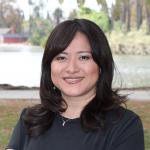Advance Your Professional Development with SCEC’s Internships and Transitions Programs

SCEC’s Experiential Learning and Career Advancement (ELCA) programs offer a variety of opportunities for students, postdocs and early-career faculty to support their skills development journey. SCEC internships allow students to participate in rewarding and diverse research experiences alongside SCEC researchers from across the country. Graduate students and early career researchers (ECRs) can hone their skills by participating in mentorship and communications workshops, exchanging ideas at a Transitions networking event, or promoting their work at a conference funded by a Transitions Research Travel Award. Professional development programs improve the knowledge and skills important in creating a thoughtful and engaged community. This article details how SCEC members can benefit from ELCA programs as they transition in their careers. SCEC members interested in learning more about the programs described below can contact Gabriela Noriega (gnoriega@usc.edu) for more information.
Train the next generation of SCEC scientists
Internships support skills development critical for students transitioning to STEM careers. The SCEC SOURCES program provides undergraduates with experiences that support active research participation. SOURCES offers remote research opportunities allowing student participation regardless of geographic location or availability of local researchers. Interns begin their research experience during the summer and may have the option of an academic year extension. Academic year research training increases skills building for students and offers additional opportunities for research presentations at professional conferences. All SCEC interns (current and former) have access to career mentoring and support transitioning to graduate school or employment.
Polish your Mentorship and Communications skills
SCEC offers training designed to help participants develop skills for engaging in productive, culturally responsive, research mentoring relationships. Mentorship training workshops are available to graduate students, postdocs, and faculty at all career stages and disciplines. Workshop participants form part of a cohort and network of mentors equipped with a toolbox of strategies for effective research mentoring. Workshops address topics such as Aligning Expectations, Addressing Equity and Inclusion, Assessing Understanding, and Maintaining Effective Communication. Science communication workshops will focus on communicating with technical and non-technical audiences. Workshops will address communication elements such as Identifying and Connecting with your audience, Speaking the "same" language, and Compelling storytelling. The intention is to provide scientists with skills and confidence in communicating their research across disciplinary, organizational, and geographic boundaries. Mentorship and communications skills are essential for leveraging technical work and having a broad impact on society.
Build Collaborations and Community
The SCEC Transitions program facilitates opportunities for researchers and students to gain competencies for successful career pursuits in a changing workforce and grow the network capable of promoting cultural change within and beyond science.
Through special events, we bring together students, postdocs, ECRs, and senior researchers from academia and industry to share career experiences and advice to navigate critical career transitions. SCEC coordinates meet-and-greet events (e.g. roundtables; lightning talks; luncheons) at professional meetings and conferences. The Center has established a robust, ongoing schedule of community building events including the annual SCEC Breakfast Club and a yearly AGU Section Meeting to engage ECRs.
ECRs conducting SCEC-related research who need supplemental support for their project or have a conference abstract accepted may apply for research and travel support. This allows graduate students and postdocs some autonomy to compete for funding to support their professional development goals.
The SCEC Transitions Program bridges gaps, when financial resources are not otherwise available, for grad students and postdocs to build their professional profile, expand their professional network, and/or broaden their research interests. Student Research Travel Awards help ECRs attend conferences that might otherwise be out of their financial reach. Undergraduates, graduate students, and postdocs from U.S. domestic colleges and universities are all eligible to apply for travel support scholarships year-round.
Students and ECRs can apply for awards to support summer projects in the transition to grad school and/or participation in professional meetings. SCEC offers awards to support, for example, new graduate students by providing stipends to initiate summer projects in the transition to grad school, to partially support application fees for graduate schools, and/or participation at professional meetings, which are essential in building and accessing support networks.
Sponsor a skills-building workshop
Leadership and management training supports the development of inclusive leaders. The SCEC Transitions Program welcomes proposals for workshops, seminars, short courses, or other types of training experiences for early-career researchers (ECRs) and students that (i) expand their competency in using earthquake research tools and techniques and (ii) increase awareness of geoscience career pathways and advancement opportunities.
SCEC leaders interested in submitting a proposal or in participating in any ELCA activity should contact Gabriela Noriega (gnoriega@usc.edu) for more information.
About the Author
 |
Gabriela Noriega is the Manager of Experiential Learning and Career Advancement, a focus area within SCEC's Communication, Education, and Outreach program at SCEC, where she leads STEM education and career development initiatives to provide early-career scientists and students with resources and mentoring across key career transitions. Dr. Noriega manages SCEC’s Internships and Transitions Programs, and supports the coordination of public-private partnerships that work together to improve earthquake preparedness, mitigation, and resilience. |
Acknowledgments
Support for SCEC's Office of Experiential Learning and Career Advancement is provided by NSF Cooperative Agreement EAR-1600087 and USGS Cooperative Agreement G17AC00047, with additional support from the USC Dornsife College of Letters, Arts and Sciences.



